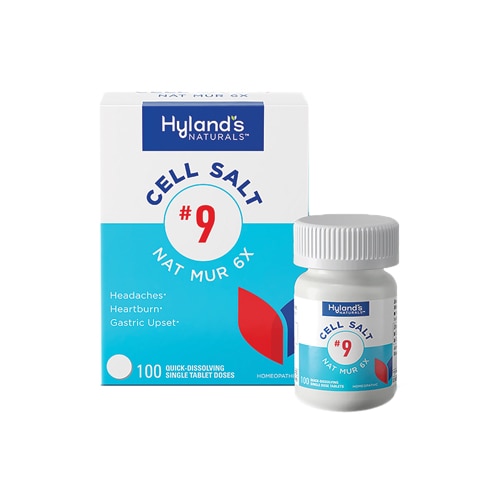[vc_row][vc_column][vc_column_text]
Alcohol has been part of the human condition since roughly 6500 BC when villagers in Northern China discovered the impact of fermented berries. And while the $252-plus billion alcohol industry may persuade us into thinking that alcohol is the key to social connection, alcohol has a darker, more insidious side to it. This is becoming increasingly evident as we’re emerging from the
pandemic and discovering that what was once an innocuous activity for some moved into problematic, even grave territory.

Data demonstrates that moderate and heavy drinking skyrocketed during COVID-19, and women were impacted the most significantly:
Heavy drinking among women rose 41% from 2019 to 2020 and beyond, placing an untold number of them at risk for alcohol-related health issues.
No matter your gender, alcohol misuse can lead to a host of complications, from cirrhosis of the liver to inflammation. But with conflicting information about alcohol—who
hasn’t heard that it can actually support wellness?—when and where does it shift from beneficial to harmful? And can alcohol
help inflammation, or does it only exacerbate it?
With “
Dry January” right around the corner, focusing your attention on your relationship with alcohol may be more important than ever. Let’s dive into the link between alcohol and inflammation so that
you can make well-informed drinking decisions.
What is inflammation?
Inflammation may get a bad rap but it’s a natural, fundamental part of the bodily process. Indeed, acute inflammation is one of the reasons humans are still in existence since the first days of alcohol’s use millions of years ago.
Think of it like this: When a pathogen such as a bee’s stinger invades your body (or, rather, you step on it), your immune system fires off a string of cytokines and inflammatory cells to kickstart the healing process, which is precisely why bee stings are typically accompanied by swelling, heat, and redness.
This acute inflammatory response is a brilliant part of human design: It assists with wound healing and attacks bacteria, viruses, and other toxins to protect your well-being. Once the healing has been completed or the pathogen has been kicked out, your body’s natural inflammatory response ends. In the case of a bee sting, swelling subsides and the shade and temperature of your skin returns to normal.
Chronic inflammation, however, is how inflammation earned its less-than-stellar reputation. With chronic inflammation, the body’s alarm bells don’t stop ringing, even though no danger is present. The flood of inflammatory cells and cytokines continues to be on high alert and wreaks havoc on the body’s tissues and organs. Fatigue, joint pain, skin rashes and abdominal pain are a few of its most common symptoms.
More concerning, though, is the connection between inflammation and the development of several illnesses, including cardiovascular disease, Alzheimer’s, type 2 diabetes, rheumatoid arthritis, asthma and even cancer.
Why does chronic inflammation occur?
None of us choose to continue sending out signals that we’re in harm’s way—and face further harm in the process. Autoimmune diseases such as lupus, untreated inflammation from an injury, and ongoing exposure to
environmental toxins like air pollution can trigger chronic inflammation. Under other circumstances, there is no direct connection between one’s health status and the onset of chronic inflammation.
That said, chronic inflammation is also closely associated with lifestyle factors—namely, high stress, over or under-exercising, obesity, smoking, and, yes, excessive alcohol consumption.
Why does alcohol cause inflammation?
Alcohol—specifically, ethanol---is deemed a toxin by our bodies, even if intoxication slyly tells us otherwise. Consider a hangover, which is a manifestation of acute inflammation. Headaches, nausea, a mild fever, a headache—all are the aftereffects of your body trying to beat back and process the ethanol you ingested.
Hangovers, however, are recoverable. And yet, with prolonged, heavy drinking, the body constantly stands at alert and continues to send out an inflammatory response.
Alcohol also causes systemic inflammation in part because of its
effect on gut bacteria—an incredibly complex ecosystem that impacts everything from skin health to mood. The sugars in alcohol can promote the growth of bacteria, sending your intestinal environment into a tailspin by stimulating the production of endotoxins—chemical messengers that can incite inflammation. Furthermore, alcohol heightens the risk of
“translocating” lipopolysaccharide (LPS) out of the gut, ultimately compromising the central nervous system’s ability to moderate anti-inflammatory responses. Consequently, this can lead to organ damage.
More recently, scientists have discovered that alcohol causes the liver to manufacture high levels of C-reactive protein (CRP) when it becomes inflamed, which can spark widespread inflammation throughout the body.
What are the consequences of alcohol-induced inflammation?
Alcohol-triggered inflammation can result in a bevy of health complications. Pancreatic inflammation can lead to pancreatitis, a chronic condition that debilitates pancreatic function and may result in hypoglycemia, hyperglycemia and
diabetes.
Moreover, the liver—which is responsible for processing over 90% of the alcohol that you consume—becomes overworked and damaged. Scar tissue replaces healthy tissue and liver function declines, effectively dialing down your ability to process alcohol, period. (Unfortunately, by the time liver disease is detected, it may be too late to halt its deterioration. This may result in liver failure, which is often fatal.)
Alcohol-induced inflammation can also weaken your body’s ability to fight off colds and viruses, heighten your vulnerability to heart disease, and lead to severe cognitive and psychological changes, including anxiety, depression and brain damage. To further complicate matters, alcohol’s high purine content can lead to a surplus of uric acid and provoke inflammatory conditions such as gout and osteoarthritis. Even a
small amount of alcohol can cause inflammation and lead to everything from poor work performance to muscles that feel too weak for your evening run.
Terrifying? Definitely. But alcohol isn’t
always a negative thing for some people. Keep reading.
Does alcohol always cause inflammation?
This depends on what you drink—and how much. A substantial body of research shows that the
polyphenols found in red wine, such as resveratrol, have an
anti-inflammatory effect and may reduce the risk of heart disease.
The key, though, is to drink only in moderation, if at all: Whole foods naturally brim with polyphenols, particularly spices such as cloves, rosemary and oregano, nuts, berries, green tea and vegetables like artichokes and olives. And if you do find yourself looking for a way to take the edge off? Consider a walk and a piece of
dark chocolate. The latter is rich in heart-healthy polyphenols and exercise is more effective at combatting stress, immediately and in the long run.
How can I reduce alcohol-induced inflammation?
For starters, examine how your body and brain respond when you drink. If you find yourself consistently sick the following morning or feel antsy or blue until “wine o’clock” rolls around again, it may be time to assess your “kinship” with alcohol and if it’s causing you more harm than pleasure. Fortunately, we live in an era where the stigma surrounding alcohol use disorder has waned considerably; everyone from Brad Pitt to Miley Cyrus are open about their struggles with addiction and happily sober. Even more to our advantage is the sheer range of help available, from alcohol-monitoring apps to global support services and treatment networks.
Additionally, keep in mind that
the liver is capable of processing only one drink per hour, but this “standard” is contingent upon several factors, including your age, gender,
BMI, overall health and nutritional status, and the condition of your liver. Indeed, some experts suggest that since women have a considerably more challenging time processing alcohol than men—and are at a greater risk of depression, anxiety and chronic stress, which can instigate problematic drinking behaviors—they should avoid it altogether.
This may be unrealistic to some, especially now that
the holidays with their
mulled wine and spiked eggnog libations are among us. If you do elect to drink, the safest way to do so is not to exceed one drink per night (for women) and two drinks (for men). Further, refrain from drinking on an empty stomach, stay well hydrated…and bear in mind that the most delightful “buzz” arises naturally from within.[/vc_column_text][/vc_column][/vc_row][vc_row][vc_column][vc_text_separator title="Featured Products" border_width="2"][vc_row_inner equal_height="yes" content_placement="middle" gap="35"][vc_column_inner width="1/3"][vc_single_image image="164071" img_size="full" alignment="center" onclick="custom_link" img_link_target="_blank" css=".vc_custom_1671751005475{padding-right: 7% !important;padding-left: 7% !important;}" link="https://www.vitacost.com/megafood-turmeric-inflammation-response"][/vc_column_inner][vc_column_inner width="1/3"][vc_single_image image="164072" img_size="full" alignment="center" onclick="custom_link" img_link_target="_blank" css=".vc_custom_1671751022049{padding-right: 7% !important;padding-left: 7% !important;}" link="https://www.vitacost.com/the-good-patch-rescue-plant-patch"][/vc_column_inner][vc_column_inner width="1/3"][vc_single_image image="164070" img_size="full" alignment="center" onclick="custom_link" img_link_target="_blank" css=".vc_custom_1671751040326{padding-right: 7% !important;padding-left: 7% !important;}" link="https://www.vitacost.com/carlson-inflammation-balance"][/vc_column_inner][/vc_row_inner][/vc_column][/vc_row]
 Data demonstrates that moderate and heavy drinking skyrocketed during COVID-19, and women were impacted the most significantly: Heavy drinking among women rose 41% from 2019 to 2020 and beyond, placing an untold number of them at risk for alcohol-related health issues.
No matter your gender, alcohol misuse can lead to a host of complications, from cirrhosis of the liver to inflammation. But with conflicting information about alcohol—who hasn’t heard that it can actually support wellness?—when and where does it shift from beneficial to harmful? And can alcohol help inflammation, or does it only exacerbate it?
With “Dry January” right around the corner, focusing your attention on your relationship with alcohol may be more important than ever. Let’s dive into the link between alcohol and inflammation so that you can make well-informed drinking decisions.
Data demonstrates that moderate and heavy drinking skyrocketed during COVID-19, and women were impacted the most significantly: Heavy drinking among women rose 41% from 2019 to 2020 and beyond, placing an untold number of them at risk for alcohol-related health issues.
No matter your gender, alcohol misuse can lead to a host of complications, from cirrhosis of the liver to inflammation. But with conflicting information about alcohol—who hasn’t heard that it can actually support wellness?—when and where does it shift from beneficial to harmful? And can alcohol help inflammation, or does it only exacerbate it?
With “Dry January” right around the corner, focusing your attention on your relationship with alcohol may be more important than ever. Let’s dive into the link between alcohol and inflammation so that you can make well-informed drinking decisions.



